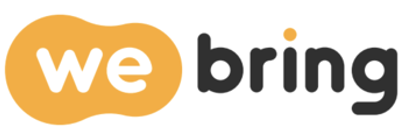Many students who complete their studies in Korea want to continue their career through employment after graduation in Korea. Entering a Korean company or research institute to gain hands-on experience and build a career in the Asian market is certainly attractive. However, there are many things to prepare, such as visa conversion, resumé and cover letter writing, and interview preparation. In this post, we’ll cover the full process and strategies for “getting a job in Korea after graduation.”
1) Visa Conversion: D-2 → D-10 → E-7, etc.
If you are staying in Korea on a student visa (D-2), you’ll need to switch to a job-seeking visa (D-10) or employment visa (E-7, etc.) after graduation. The D-10 visa is a temporary visa available to those who have not yet secured a job and wish to look for employment within Korea. It’s usually renewable every six months, and once you are hired, you can switch to an E-7 (for professionals) or other employment-related visas like E-1~E-6.
Tip: Make sure to prepare all necessary visa conversion documents, such as a graduation certificate, employment contract, financial proof, and personal references. Visit your local immigration office for guidance and be cautious not to miss deadlines.
2) Understanding the Job Market: Conglomerates, SMEs, Startups
Companies that are known to hire foreigners in Korea include large conglomerates (Samsung, LG, Hyundai, etc.), small and medium enterprises (SMEs), startups, and foreign-affiliated companies. Conglomerates and foreign companies tend to have higher demand for global talent and offer more opportunities for international students. At the same time, SMEs and startups are also increasingly hiring foreigners, especially for roles where specific technical or language skills are needed.
Tip for international students: Your strategy should vary depending on your major. For science and engineering students, conglomerates and research centers are good targets. For IT and software, startups are actively hiring. Humanities and social science majors can find opportunities in translation, marketing (especially international sales), and trade-related positions.

3) Writing Your Resumé & Cover Letter
Most Korean companies require a Korean-language resumé and self-introduction letter (cover letter). An English resumé alone may not be sufficient, so preparing documents in Korean is often necessary. However, some foreign companies or roles in international sales may accept English or Chinese resumés. Be sure to carefully check job postings.
- Resumé: Include your name, contact information, educational background (university/graduate school), experience (internships, part-time work, projects), certifications, and language test scores (such as TOEIC, TOPIK). Some Korean companies request your date of birth, ID photo, and gender, though more employers now allow omitting those due to personal information policies.
- Cover Letter: Write about your motivation, strengths, and preferred job roles in 2–3 sections. Since this is a place to showcase your Korean writing skills, thoroughly proofread for grammar and sentence clarity. Adding specific examples (projects, past results) and numerical data can increase persuasiveness.
4) Portfolio & Interview Preparation
In fields like design and IT, a portfolio is essential. You should be able to present your university/graduate projects, personal works, and coding achievements as a PDF or website. Preparing this in advance is a great way to demonstrate your expertise.
Interviews are usually conducted after your application passes screening. They may be held in Korean, English, or both. Depending on the company, interview types may include panel interviews, presentations, or group discussions. Korean interviews also highly value etiquette, greetings, and appearance, so wearing formal attire, being punctual, and maintaining polite manners are crucial.
5) Job Search Platforms & Recruitment Information
You can search job openings labeled “foreigner-friendly” or “global talent hiring” on major sites like Saramin, JobKorea, Wanted, and LinkedIn. In addition, university career support centers or department email notices may include special job listings for international students—so check them frequently.
On online communities (Facebook groups, Band, etc.), you might find posts about foreigner hiring. Certain public institutions or corporations also run industry internship programs. You can also reach out to your home university’s exchange office, international affairs team, or academic advisor—they may have unexpected connections or recommendations.
6) Language Proficiency: TOPIK & English Scores
Generally, Korean companies often expect international applicants to have Korean proficiency at TOPIK level 4 or above. For roles involving international work, English or a second language may hold more importance. If your native language is in high demand, you could be favored in trade or marketing positions.
Tip for international students: Regardless of your major, obtaining a high-level TOPIK or a valid English test score can give you an edge during screening. Many companies prefer bilingual (Korean + English) candidates, so emphasize your language strengths.
7) Internships & Field Training
If a full-time position feels too burdensome at first, consider starting with an internship. Many Korean companies accept foreign interns, and there’s a growing number of cases where 3–6 month internships lead to full-time offers after mutual evaluation.
Also, many universities operate field training programs (industry-academic internships) for academic credit while studying. Check for notices from your school’s international office or career center. During this process, you’ll build networking opportunities—and if the company responds positively, they may later offer you a job after graduation.
8) Visa Maintenance & Work Permission
With a student visa (D-2), you are allowed to work part-time or intern under restricted hours. However, for full-time employment, you must switch to an E-7 visa according to immigration regulations. This visa generally requires a bachelor’s degree or higher, a certain salary threshold, and alignment with your field of study.
When ready, convert to a D-10 job-seeking visa, find a suitable employer, and then prepare documents like your employment contract, business registration, and academic credentials to apply for the E-7. The visa is valid for two years and can be extended. Note: For smaller companies, visa approval may be more difficult, so it’s important to stay in touch with the HR team for proper processing.
9) Interview Etiquette & Cultural Differences
Typical Korean interview etiquette includes wearing formal attire, greeting politely, and maintaining respectful behavior throughout. Questions usually focus on your academic knowledge, job suitability, and Korean language ability. Sometimes, they may check how well you understand the company (“Do you know what our business does?”) or assess your personality and reliability.
Tip: Prepare answers in Korean to commonly asked questions like “What are your strengths?” or “Why do you want to join our company?” Even if you make grammar mistakes while speaking, don’t panic—just focus on clearly conveying your main point.
10) Conclusion
If you want to get a job in Korea after graduation, you should quickly begin preparing for visa transition, enhancing your language skills, researching companies, and writing your resumé and cover letter. Although landing a job is not easy, if you bring professionalism and skills like bilingual fluency, there are plenty of opportunities.
Most importantly, evaluate whether your field of expertise has growth potential in Korea and whether you’ve gained sufficient hands-on experience through internships or research labs. Even after securing a job, be thorough in maintaining your E-7 visa and residency status—communication with your company’s HR or immigration offices is key.
If you pass through this process successfully, you’ll begin a new career within Korean work culture, gaining not only technical skills but also experiencing a deeper “local integration” beyond student life. Best of luck with your job search and your exciting new journey!


WeBring Service : Provides personalized services to foreigners living in Korea
Exclusive offer: Introducing foreign car rental in Korea, WeBring-SoCar

